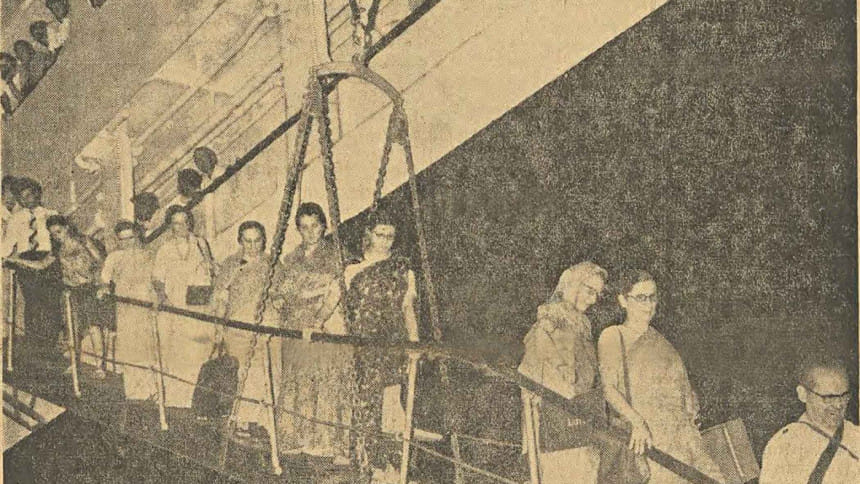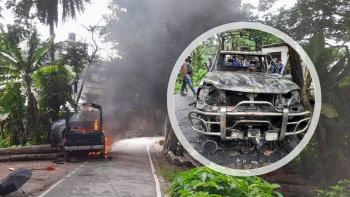Dangerous dissent

April 6, 1971
2 BANGALEE DIPLOMATS
DEFECT FROM PAKISTAN
Two Bangalee diplomats -- Second Secretary KM Shehabuddin and Amjadul Huq, assistant press attaché at the High Commission of Pakistan in New Delhi -- today announced their decision to defect from Pakistan and pledged allegiance to Bangladesh at a press conference in New Delhi. They sought asylum in India and the request was immediately granted. They decided to break with the Islamabad regime in view of the Pakistan Army's massacre of the people of Bangladesh.
THE DISSENT CABLE
Denouncing the US policy towards the crisis in Bangladesh, American Consul General in Dhaka Archer K Blood and his colleagues, including officers of USAID Dhaka and USIS Dhaka, sent the famous "dissent cable" today to the US State Department: "Our government has failed to denounce the suppression of democracy. Our government has failed to denounce atrocities. Our government has failed to take forceful measures to protect its citizens while at the same time bending over backwards to placate the West Pak dominated government and to lessen likely and deservedly negative international public relations impact against them. Our government has evidenced what many will consider moral bankruptcy, ironically at a time when the USSR sent President Yahya a message defending democracy, condemning arrest of leader of democratically elected majority party and calling for end to repressive measures and bloodshed."
TALES OF GRIM FIGHT
More than 100 foreign evacuees arrived in Kolkata today after a 34‐hour voyage from Chittagong. They shared the latest eyewitness reports about the Pakistani army's attempt to suppress the independence movement.
"It's a massacre," said John Martinussen, a Danish student who later became an authority on international development policy.
Refuting the Pakistan government's propaganda, Martinussen, who came to Chittagong seven months ago with his wife Karen to study Pakistani politics as part of his master's degree programme at Aarhus University in Denmark, said, "Nothing is calm, and nothing has come back to normal.
"They systematically burned down the districts of the poor people, apparently because they felt they couldn't search them thoroughly," he went on. "They seemed to be enjoying killing and destroying everything.
"Many Bengalis have been killed," the 23‐year‐old student said. "In the river just four days ago, you could count 400 bodies floating in one area."
The evacuees informed that after several days of fighting, the army -- all West Pakistani troops -- had pushed the Bangladeshi resistance forces out of the city. But, they added, the army's control ends five miles outside the city, at the banks of the Karnalphuli River.
Everything from the river south, they said, is in the hands of the "liberation army" which consists of civilians and members of the East Pakistani police, the East Pakistani Rifles and the East Bengal Regiment who have come over to the independence movement.
The evacuees further said they could hear shooting on the outskirts of the city even as they were leaving for Kolkata yesterday morning. Most of the residents had fled the city and gone into the countryside, they added.
INDIA DENIES DEPLOYMENT
A spokesman for the Indian Government today denied that Indian troops had been moved to the border of East Pakistan.
The spokesman was reacting to protests sent by Pakistan to several governments, including the Soviet Union, asserting that six Indian army divisions had been deployed near the border.
Shamsuddoza Sajen is a journalist and researcher. He can be contacted at [email protected]

 For all latest news, follow The Daily Star's Google News channel.
For all latest news, follow The Daily Star's Google News channel. 



Comments